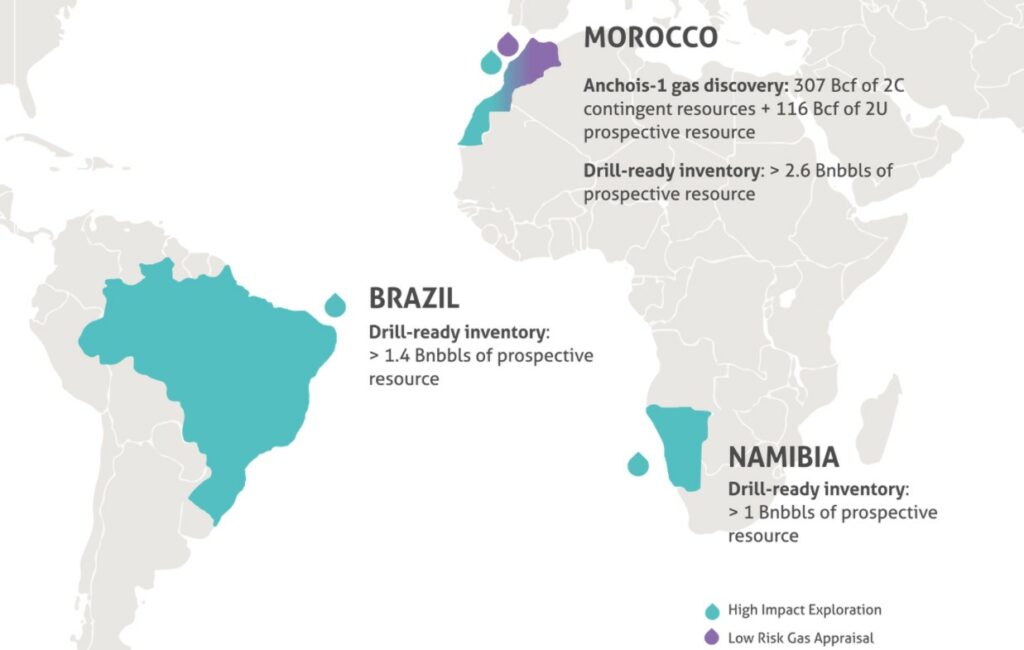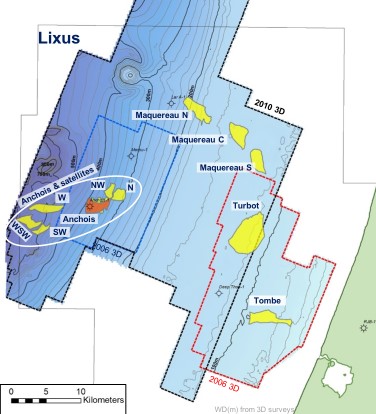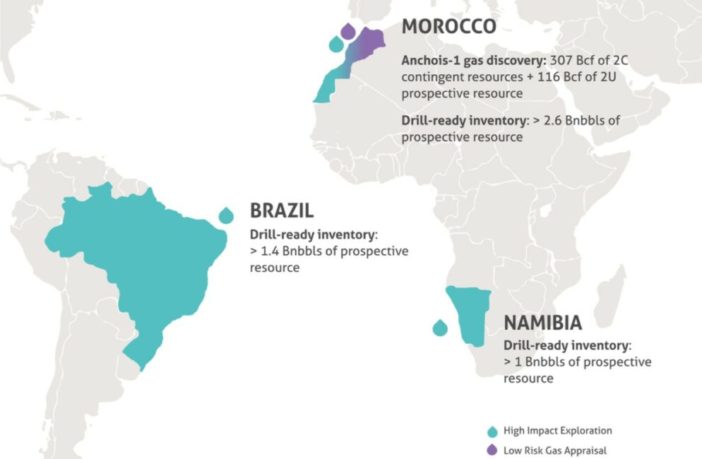by Bojan Lepic
Oil and gas exploration company Chariot Oil & Gas has revealed that its Lixus license offshore Morocco, which contains the undeveloped Anchois gas discovery, could potentially hold more gas than previously thought.
Chariot said Monday it completed the reprocessing of 3D seismic data across the license, which resulted in “significant improvements in both image quality and in-depth control”.
According to the company, this had a positive impact on the understanding of the distribution and extent of the Anchois gas sands.

Following the reprocessing of the data, an updated independent assessment on the 50 square kilometre area where Anchois is located, led to a significant resource upgrade for the proposed Anchois gas field development.
The upgraded audited total remaining recoverable resources are now over 1 Tcf which represents a 148 per cent increase – comprising 361 Bcf 2C contingent resources and 690 2U prospective resources.
Adonis Pouroulis, Acting CEO, said: “The recent work on the Lixus Licence confirms the materiality of the Anchois Gas Field Development project. We continue to hold the view that this asset has the capacity to be a value accretive and long-term project of national significance to Morocco.
“The Anchois development has the potential to supply material gas volumes into existing markets in the near-term, and the exploration prospectivity of the Lixus license is of a scale sufficient to provide the Moroccan power sector with a clean, reliable, low cost, and sustainable supply of gas for decades to come.
“We continue to make progress in unlocking the Anchois development and generating near term cash flows and we look forward to keeping our shareholders updated on developments on Lixus and, as previously announced, the other opportunities being reviewed over the coming months“.

Chariot has a 75 per cent interest and is the operator of Lixus in partnership with the Office National des Hydrocarbures et des Mines (ONHYM) which holds the remaining 25 per cent interest.
The Lixus license off Morocco covers an area of around 2,390 square kilometres with water depths ranging from the coastline to 850 metres.
It is worth noting that the area was previously explored with legacy 3D seismic data covering approximately 1,425 square kilometres on-block and four exploration wells including the Anchois gas discovery.
The Anchois development concept consisted of subsea production wells tied to a subsea manifold, from which a subsea flowline and umbilical connect the field to an onshore central processing facility where gas is processed and then delivered into the Maghreb-Europe gas pipeline via an onshore gas flowline.







